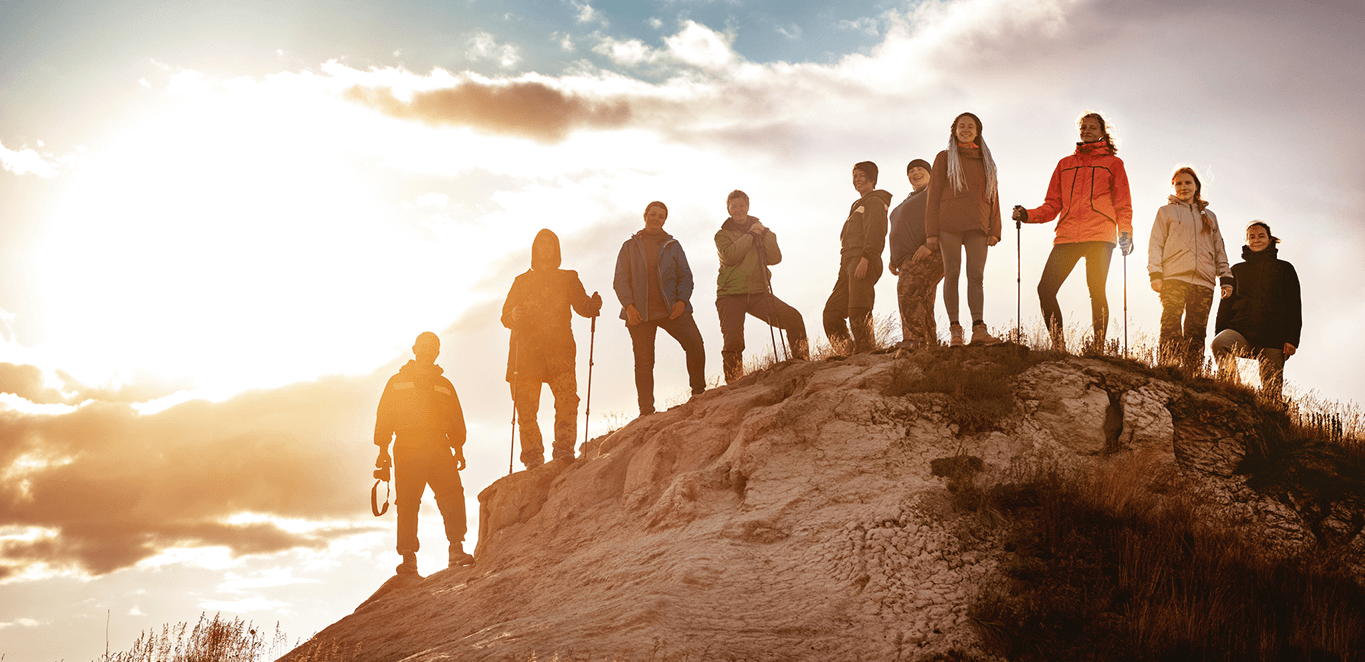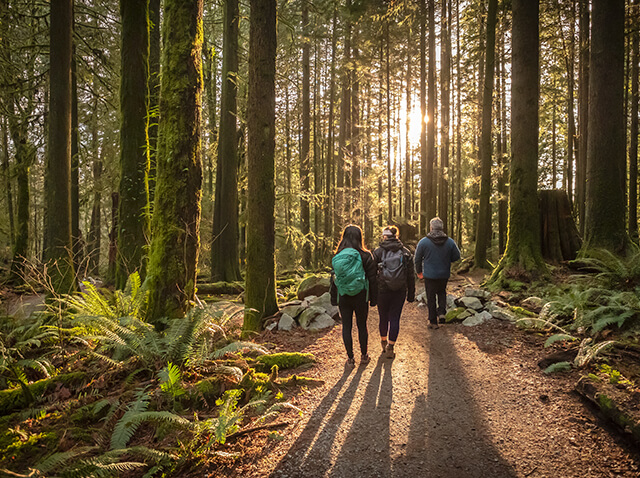

“Our essential nature is usually overshadowed by the activity of the mind.”
— Pantanjali
What Is Experiential Therapy?
Experiential therapy provides clients with experiences including hiking, camping, forest bathing, outdoor meditation, and yoga to expose them to new activities and ways to increase self-awareness, mindfulness, processing of thoughts and feelings, self-esteem, and your ability to uncover solutions to difficulties. Our experiential therapies focus on providing a catalyst that leads to increased self-understanding, compassion, and acceptance. Learning through these experiences will illuminate aspects of self and your life that need attention, as well as the place to heal and learn to integrate the benefits into your daily life. Because physical activity, immersion in the natural world, and group activities can reduce depression and anxiety and increase physical health, social skills, and positive coping, we incorporate experiential therapy in treatment plans for our patients.
HOW IT WORKS


How Experiential Therapy Works
Hiking can be a transformational experience that integrates body, mind, and spirit. Our guided hikes incorporate mindfulness and meditation practice and provide opportunities to process thoughts, feelings, and experiences and receive group and therapist support. Research shows that hikers are healthier and happier.


The Japanese practice of shinrin-yoku, or “forest air bathing,” involves spending time with trees while attending to all five senses. The physiological effects of forest bathing are documented in this article, which summarizes data collected from subjects who participated in a controlled study in 24 forests across Japan.
Groups of 12 were split up, and 6 subjects would visit urban areas, while 6 walked in nature. The results show that the subjects who spent time in forest environments exhibited lower concentrations of cortisol, lower pulse rates, lower blood pressure, greater parasympathetic nerve activity, and lower sympathetic nerve activity than those who spent time in city environments. The study has contributed to the development of a forest medicine-focused research field that may be a resource for preventive medicine.


Practicing mindfulness in nature is an enjoyable way to practice the biofeedback and neurofeedback skills you learn in your individual training sessions.
Dr. Delli Colli is a registered yoga teacher and yoga therapist. She developed and implemented a program utilizing Zen Buddhism for substance use disorders at the Psychological Center in Lawrence, Massachusetts. At Hills, Dr. Delli Colli uses yoga as a form of experiential therapy. In yoga therapy, you will be guided to dialogue with what is surfacing through your body, process your experience in a relaxed state, and release emotional and physical pain. Time at the end of practice will include processing of your experience and receiving group and therapist feedback.
How Experiential Therapy Helps


Learning how to relax and how to channel and direct energy, feeling, and emotion is an important tool for living a healthy and balanced life. We practice experiential therapy to decrease the stress response and increase a sense of tranquility. Experiential therapy provides a way to access and work out emotional issues, behavioral problems, and interpersonal difficulties.


The benefits of hiking and meditating in nature include improvements in mood, learning, executive function, memory, connection to self and others, and stress levels. Yoga is both physical exercise and transformational practice that integrates body, mind, and spirit. Yoga offers a way to encounter and release physical, mental, and emotional tensions through exercise, breathing, and meditation, to arrive at deeper levels of relaxation and awareness.
We offer the following types of experiential therapy:


- Hiking
- Beach meditation
- Yoga Therapy
- Forest bathing
- Walking
- Camping
CONDITIONS TREATED
-
Trauma & PTSD
-
Depression
-
Anxiety
-
Chronic Pain
-
Attention-Deficit/Hyperactivity Disorder (ADHD)
-
Substance Use Disorders
-
Performance Enhancement
-
Traumatic Brain Injury (TBI)
-
Chronic Stress
-
Burnout
-
Bipolar Disorder
-
Obsessive-Compulsive Disorder (OCD)
DISORDERED EATING AND BODY IMAGE, INCLUDING ANOREXIA, BULIMIA, BINGE EATING
Schedule a Free Consultation
Contact us to schedule a free, 15-minute phone consultation to learn more and see if our integrative psychology services are right for you.
